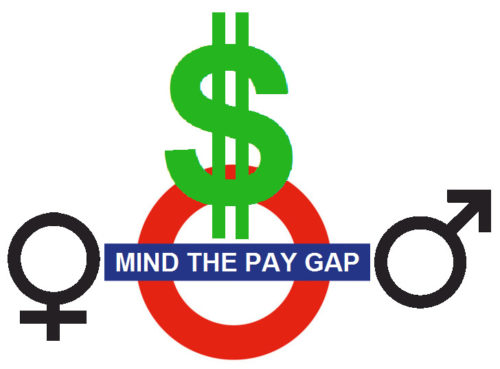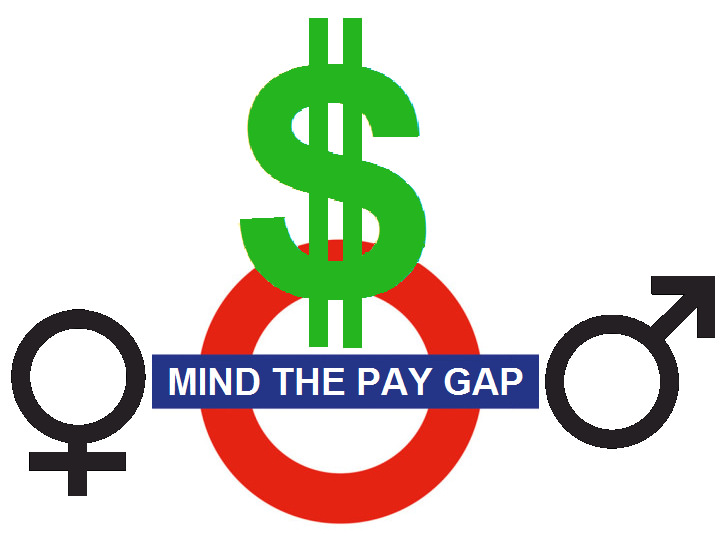 I got slammed on Facebook for sharing this article about the wage-gap myth and President Obama’s reporting requirement which is going to cost “only” $400 per employees for employers with 100+ employees. Actually, what I mostly got slammed for was my comment introducing it: “Dear Mr. President: Screw you, and every jackass that voted for you.” And rightly so, I suppose — some friends of mine who voted for him took umbrage.
I got slammed on Facebook for sharing this article about the wage-gap myth and President Obama’s reporting requirement which is going to cost “only” $400 per employees for employers with 100+ employees. Actually, what I mostly got slammed for was my comment introducing it: “Dear Mr. President: Screw you, and every jackass that voted for you.” And rightly so, I suppose — some friends of mine who voted for him took umbrage.
Fair enough. But let’s get to the meat of the matter: The wage-gap myth, and this attempt to correct it.
The much-touted soundbyte that women earn 77 cents (or 78, depending on the source) for every dollar men earn is so lacking in context that it’s deeply dishonest. Yes, if you add up the amount paid to all women working full time and divide it by the number of women, it’s roughly 78 cents compared to the same calculation for men.
But. That’s not the same thing as saying that women WITH THE SAME EXPERTISE AND EXPERIENCE IN THE SAME CAREERS earn less than men.
- Who is more likely to work part-time, or leave the job field entirely, to raise children and thus sacrifice experience and seniority? Statistically, it’s women.
- Who is more likely to gravitate toward lower-paying fields (or, more accurately, fields in which the major rewards are not monetary) such as teaching? Statistically, it’s women.
- Who is more likely to forego overtime which cuts into family time, or to turn down promotions which require relocation? Statistically, it’s women.
Of course, you may think that each of the statements above showcases yet another problem of gender disparity. Me, I think any such reaction shows an unexamined assumption that employment and wages are the true metric of individual worth, which is just so darned patriarchal, you know?
Now, is it entirely the structures of societal inequality which subtly and inexorably push women toward lower-paying jobs? Let’s look at it this way. Here’s a list of the most remunerative college majors, and the extent to which they are male-dominated (taken from this Washington Post article):
- Petroleum Engineering: 87% male
- Pharmacy Pharmaceutical Sciences and Administration: 48% male
- Mathematics and Computer Science: 67% male
- Aerospace Engineering: 88% male
- Chemical Engineering: 72% male
- Electrical Engineering: 89% male
- Naval Architecture and Marine Engineering: 97% male
- Mechanical Engineering: 90% male
- Metallurgical Engineering: 83% male
- Mining and Mineral Engineering: 90% male
Now could it be — I know, you’ve got your pitchforks and torches and “TEH HATR” banners ready, but hear me out — could it temperament and interest as much as anything which determine career choices, and could certain temperaments be more common among one gender than another?
Look, I’m a male with a degree in English Lit. I knew going in that I wouldn’t make near as much as a petroleum engineer. I also knew that I’d be suicidally miserable as a petroleum engineer. All of my upper division classes in my major were dominated (well over 80%) by female students, who certainly seemed as suited by temperament for that course of study as I was. By what evidence could you say that I may have gotten an English Lit degree because of interest and temperament, but that they were poor, weak females who were unable to look past society’s programming for them and would really have been more fulfilled as naval architects? (Remember, according to far-leftist dogma, men and women are exactly the same. Exactly. Except that men are evil. But aside from that.)
Now, is it a damned shame that society values some pursuits more than others? If you’re asking whether I personally would like more money for doing what I want to do, the answer is, “Hell sure.” But is it categorically unfair that an engineer makes more than a pre-school teacher? Only if you think that (a) life is fulfilling only to the degree that it’s “fair” (and if it’s not, it’s somebody’s fault), and (b) again, income is the only true metric of a worthwhile life.
All of which demonstrates, I think, that any thinking discussion of a gender wage-gap has to go far beyond the soundbyte statistic to get to anything remotely substantive, and that addressing gender wage-gaps as simply a question of “equal pay for equal work” is misguided. I mean, when even the Washington Post calls the soundbyte statistic out…
For that matter, “misguided” is the kindest word I can think of to describe Mr. Obama’s reporting requirement. Here are the three main reasons:
- Even if said reporting costs “only” $400 per employee (and haven’t we all gained a healthy skepticism over the last eight years whenever Mr. Obama throws out a cost, a benefit, a rate, or any number at all?), for an employer with 100 full time (or FTE) employees, that would be $40,000. In essence, this requirement mandates reporting instead of hiring an entry-level employee. (Remember, in the private sector, money has to actually come from somewhere.)
- Now, admittedly, this reason is one that can’t be backed up by cold hard data, but it passes my “sniff test” for plausibility: To the degree that women and minorities are being given less pay for equal work, I’m going to hypothesize that such discrimination ISN’T taking place in large employer groups with accredited HR departments and legally-vetted employee handbooks governing hiring and pay schedules. Instead, I would presume it takes place almost entirely in SMALL companies, the kind where there’s one employee per job description, and wages and raises are largely determined by the sole proprietor’s whim. Of course, that’s exactly the arena which this reporting requirement doesn’t address (nor could it, without killing small business cold). It’s like the old story of the drunk searching under the streetlight for the quarter he dropped. Sure, he dropped the quarter twenty feet away, but the light’s better here.
- And if the data collected from this reporting shows that, by and large, men and women of similar qualifications receive similar pay for similar jobs, and yet the raw “77 cents on the dollar” measure remains because of differences in career choice, experience, and other salient details that the soundbyte ignores? Will the EEOC put invisible pressure on employers to over-equalize among their employee base to correct the raw statistic? Will HR directors be leery of firing or passing over less-qualified female employees because they don’t want their metric hurt in the eyes of the Labor Department or the IRS? Judging by the federal government’s track record…
But what do I know? In pushing back against the administration’s attempts to create another divisive problem to solve with heavy-handed control, I am, in the words of one of the Facebook’s thread commenters, “part of the problem.”
